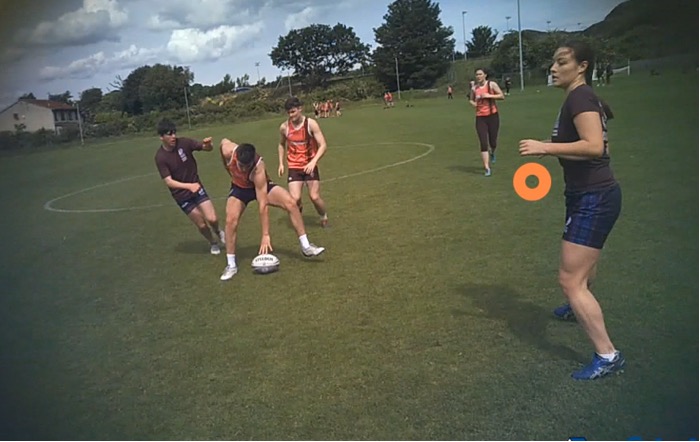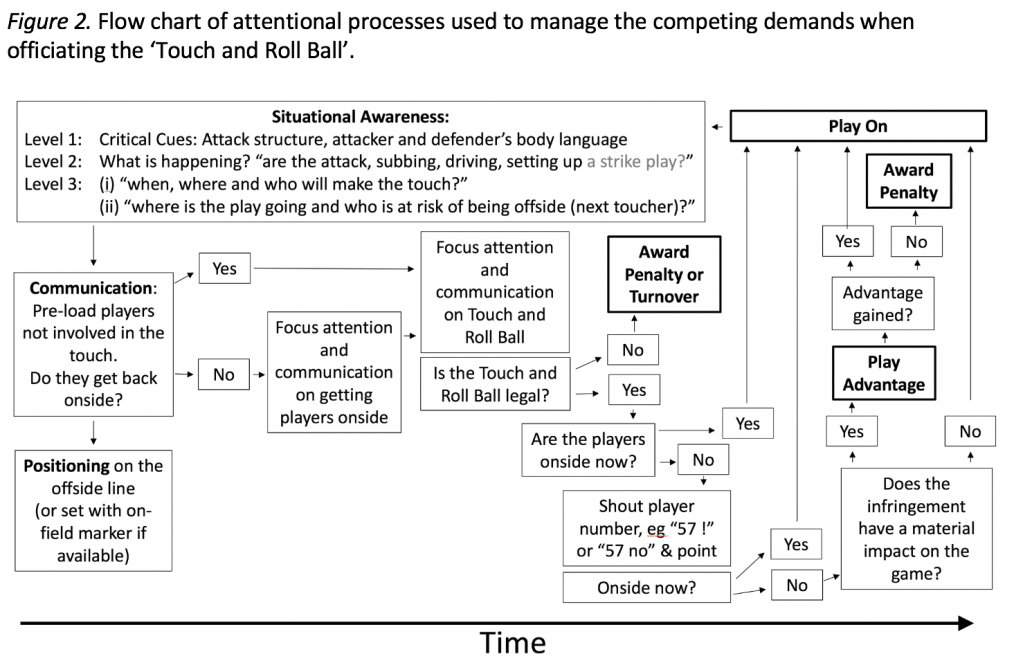Research conducted by Jack Birtwhistle (Masters student at Edinburgh University & Supervisor of Dr Amanda Martindale) in conjunction with colleagues at Edinburgh Napier University used eye-tracking glasses to test officiating expertise with 3 international touch rugby referees.
I’ll save you my ramblings on the theoretical contributions of the paper, but from an applied perspective it makes some significant findings. Given the complexity of officiating the touch and roll-ball in parallel to managing the offside line it appears that expert referees use their advanced knowledge of the game to predict and prevent infringements before they occur. This allows them to preload the defenders on where the eminent offside line will be by both communicating to them positioning themselves on that line before it comes into play.

Although this may not be groundbreaking news to those referees operating at this level, it is the first scientific study to use in-game footage with the addition of eye-tracking glasses to examine such cognitive challenges for match officials. The table below reveals the ordering system that helps referees to manage these demands.

The three referees in the study, each who have officiated over 50 international games of touch rugby, all cited the importance of teamwork, and how they rely on their sideline officials to manage other aspects of the game, so that they can remain focused on the more central players.
It is expected that the protocol employed here, using first-person, eye-tracked footage, together with postgame review (known as applied cognitive task analysis) will for the basis for future online digital training for sports officials across all sports.

Leave a comment